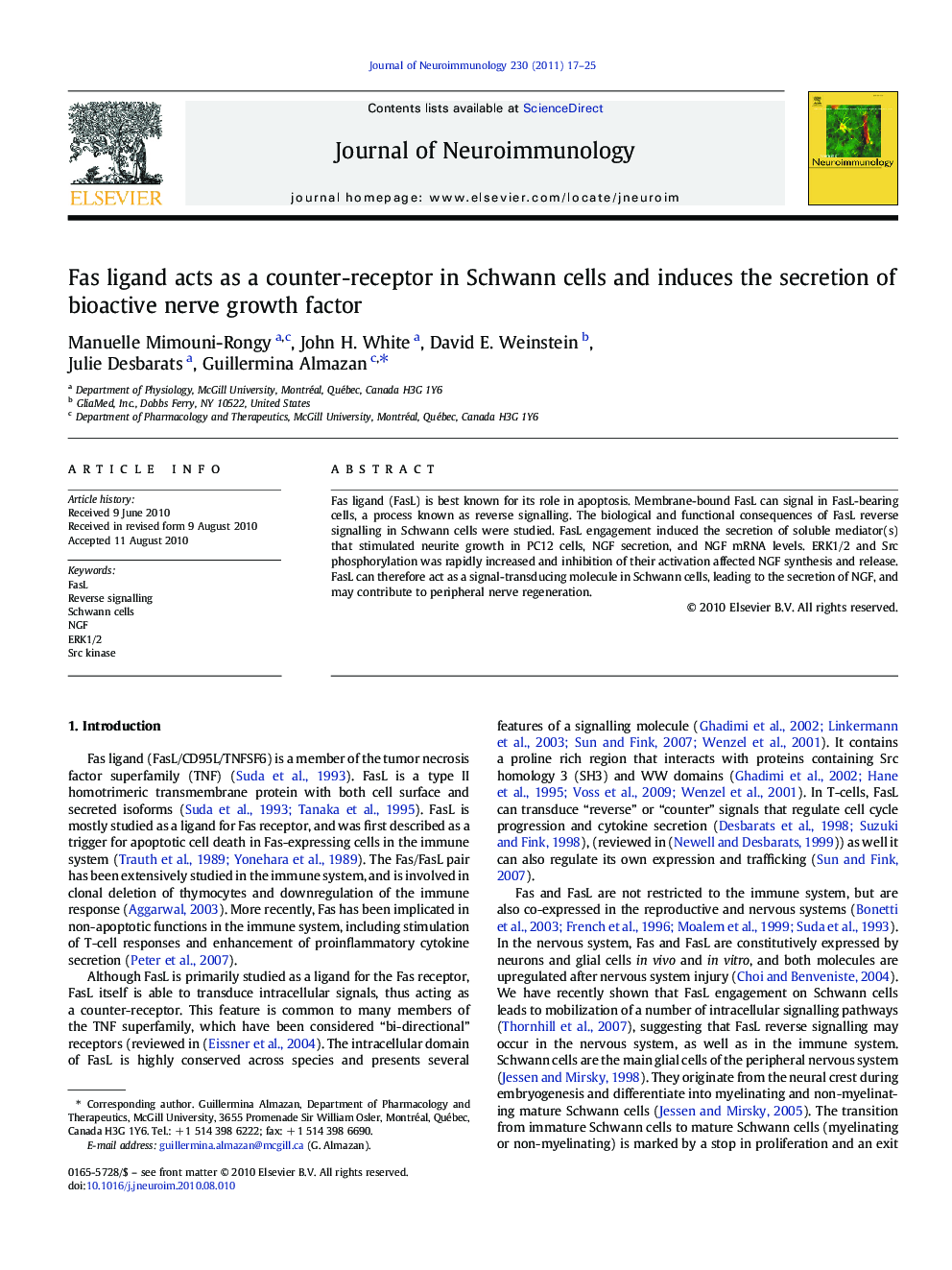| Article ID | Journal | Published Year | Pages | File Type |
|---|---|---|---|---|
| 3064445 | Journal of Neuroimmunology | 2011 | 9 Pages |
Abstract
Fas ligand (FasL) is best known for its role in apoptosis. Membrane-bound FasL can signal in FasL-bearing cells, a process known as reverse signalling. The biological and functional consequences of FasL reverse signalling in Schwann cells were studied. FasL engagement induced the secretion of soluble mediator(s) that stimulated neurite growth in PC12 cells, NGF secretion, and NGF mRNA levels. ERK1/2 and Src phosphorylation was rapidly increased and inhibition of their activation affected NGF synthesis and release. FasL can therefore act as a signal-transducing molecule in Schwann cells, leading to the secretion of NGF, and may contribute to peripheral nerve regeneration.
Keywords
Related Topics
Life Sciences
Immunology and Microbiology
Immunology
Authors
Manuelle Mimouni-Rongy, John H. White, David E. Weinstein, Julie Desbarats, Guillermina Almazan,
